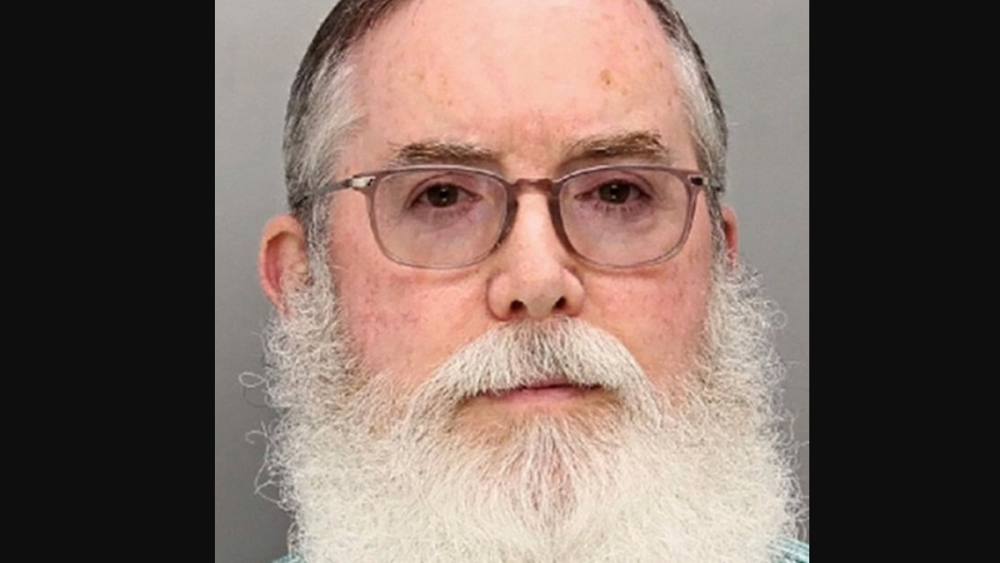By David Hurst
The Tribune-Democrat, Johnstown, Pa.
SOMERSET, Pa. — A judge has denied motions by death row inmate Paul Jawon Kendrick seeking a new trial in the 2018 killing of a state corrections sergeant.
Arguments by Kendrick’s defense alleging he was abused in prison – and new claims of misconduct by jurors and Sgt. Mark Baserman – failed to meet the legal threshold to grant Kendrick a new trial, Senior Judge Patrick Kiniry wrote.
Kiniry denied the motions Wednesday as part of a 22-page opinion responding to four separate arguments by Kendrick’s defense team.
Kendrick, 30, was sentenced to death in August after a lengthy trial in April over the fatal beating of Baserman, 60, at SCI-Somerset. Kendrick had been convicted of first-degree murder and four other counts by a Somerset County jury.
Evidence including prison surveillance video showed Kendrick unleashing a series of blows that knocked Baserman to the ground and continuing as Baserman lay defenseless on the floor.
During the trial, prosecutors said Kendrick was angry that Baserman had confiscated a towel that Kendrick used for privacy in his cell, a prohibited act inside the prison.
At the time, Somerset County District Attorney Molly Metzgar said Kendrick stalked Baserman “like prey” during a period when he was outside his cell, and finished his attack by delivering a violent sprinting kick to the sergeant’s head. Baserman suffered a traumatic brain stem injury and died in a hospital days later.
Defense attorneys Edward Rymsza and Timothy Burns argued to jurors during the trial that Kendrick did not intend to kill Baserman, questioned whether the injuries inflicted that day were the cause of Baserman’s death, and suggested Kendrick’s behavioral issues were the result of abuse he suffered as a child.
But the bulk of their post-conviction motions after Kendrick was sentenced to death centered around what they described as “newly discovered” information – reports of alleged juror misconduct and testimony by two women about alleged decades-old interactions with Baserman, which the defense said they would have offered in court.
Kendrick also took the stand in a post-trial hearing, alleging he was humiliated and “abused” by Baserman prior to the assault.
In Kiniry’s order Wednesday, the judge ruled Kendrick’s testimony didn’t meet the standard for “newly discovered” evidence, noting that Kendrick had a plethora of opportunities to divulge the allegations before the verdict.
Kendrick could have told his attorneys, prison staff, mitigation specialists and other experts who met with him – or told jurors himself during two separate opportunities to testify, Kiniry wrote.
“On both occasions, he elected not to speak on his own behalf,” Kiniry wrote.
Separately, Kiniry ruled against arguments regarding allegations by two Pittsburgh -area women about their alleged interactions with Baserman in or near their communities, years before the assault.
Defense attorneys described Baserman’s alleged behavior as “odd” and said they would have sought to have the testimony used to counter testimony about Baserman’s character.
While Kiniry described the women’s testimony as credible, he wrote that the information they provided wouldn’t have been admissible in court because it was “irrelevant to the crimes charged” and would have only prejudiced Baserman.
“This evidence would not alter the verdict in light of the commonwealth’s evidence presented at trial detailing Kendrick’s actions,” Kiniry wrote.
Regarding allegations of jury misconduct, Kiniry cited testimony by a juror, his daughter and a local police officer, who were called into court about statements allegedly made by the juror.
Kiniry wrote that a defendant has the burden of proving a juror committed misconduct. Despite claims by the juror’s daughter that the man referred to Kendrick as “the killer” at home after one day of trial, he cited credibility concerns involving her testimony.
He noted that the teen acknowledged she did not have a good relationship with her father and was only with him that day because of a court order.
The juror’s own testimony about his statements mirrored corroborating statements by a police officer with whom he spoke who lived across the road, Kiniry added.
Kiniry also declined a “weight of evidence” verdict motion by defense attorneys, writing that Kendrick’s trial included extensive evidence – testimony by fellow corrections officers and even a security video of the assault – that jurors were able to use to consider a verdict.
To grant a new trial based on the weight of evidence motion, the court would have to find that the jury’s guilty verdict was “inherently improbable” or in dispute of proven facts, and that was not the case, he wrote.
Kendrick, who was previously sentenced to life in prison for a separate 2014 Pittsburgh homicide, is serving his sentence at SCI-Phoenix.
© 2025 The Tribune-Democrat (Johnstown, Pa.). Visit www.tribune-democrat.com. Distributed by Tribune Content Agency, LLC.





